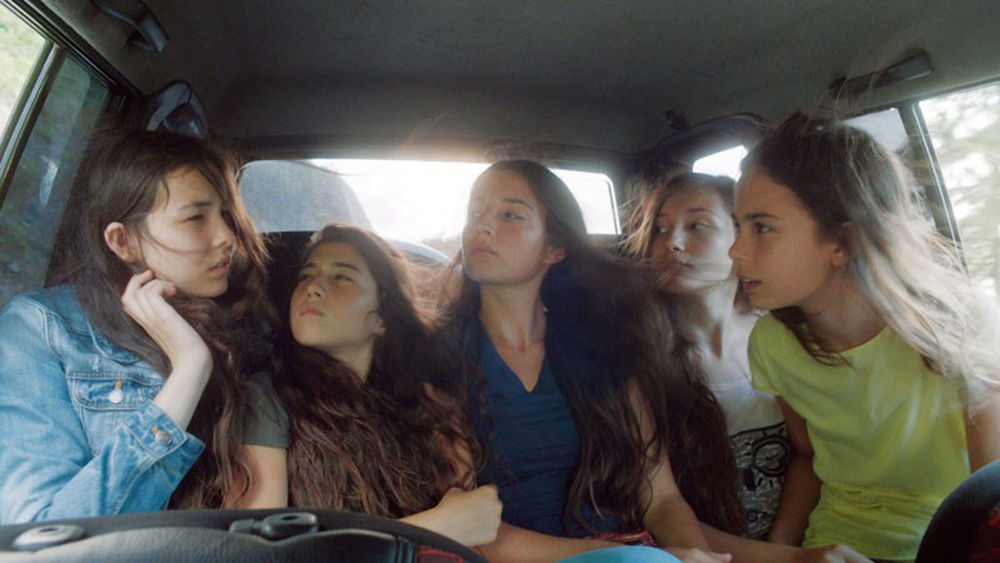Every few years a film comes seemingly out of nowhere to offer the exhilaration of discovery as it dazzles the senses. The first time I was old enough to appreciate it was when I was knocked over backwards by the one-two punch of Lynne Ramsey’s “Ratcatcher” and David Gordon Green’s “George Washington” in 2000, two feature debuts so beautifully crafted and clearly original that while you were headed somewhere new, you knew you were in the care of storytellers rich in perspective far beyond their age. In the years that have passed, I’ve come to realize how rare that is, which is why I wanted to hold onto what I was feeling the moment I stumbled out of Deniz Gamze Erguven’s “Mustang” dazed and invigorated for as long as possible.
That energy is there from the start of “Mustang” as a quintet of sisters leave school for the start of summer vacation, wasting no time in making their way to the nearby Black Sea for some fun in the sun with some of their male classmates. Yet it isn’t long before the realization sets in that what they’re doing is frowned upon if not outright forbidden in their village in Northern Turkey, with a man holding a shotgun to greet them as they pass through his apple field on their way back home, squirreling away a couple apples innocently enough. “It’s like everything changed in the blink of an eye” the youngest sister Lale (Günes Sensoy) says ominously, foreshadowing a fate for her sisters that involves their uncle putting up grates outside their windows and forbidding them to leave the grounds of the house until they’re married off in succession to men they’ve never met.

Co-written by Alice Winocour, the film flirts with elements of a thriller, certainly deriving no small amount of tension from the natural structure that unfolds as each one of the young women either tries to escape or finds themselves forced out in the arms of new husband, but the attention to detail is what really makes the experience so satisfying, with Erguven careful to make every moment count. Little references that are peppered throughout the early parts of the film are all paid off later and there are also extraordinary visual transitions throughout the film that rarely call attention to themselves yet say so much more than words ever could. Erguven’s equally masterful balancing of tones and storylines, with each sister given their due substantively and emotionally, is particularly staggering.
Erguven makes “Mustang” look effortless when in fact there’s no way it could’ve been, presiding over a cast of young actresses playing the sisters who, all but one — Elit Iscan, who plays the middle child Ece — are making their screen debut, and deeply involving the audience in something both intimate and natural while bold and cinematic. (An elegant score touched by a slight sense of mourning from frequent Nick Cave collaborator Warren Ellis helps.) With a film that uses its opening scenes to show what a force of nature these young girls can be, it’s Erugven who demonstrates she’s one to be reckoned with herself.
“Mustang” opens in the U.S. on November 20th. It will play at the Toronto Film Festival on Sept. 11 at 2:45 pm at the TIFF Bell Lightbox 2.




